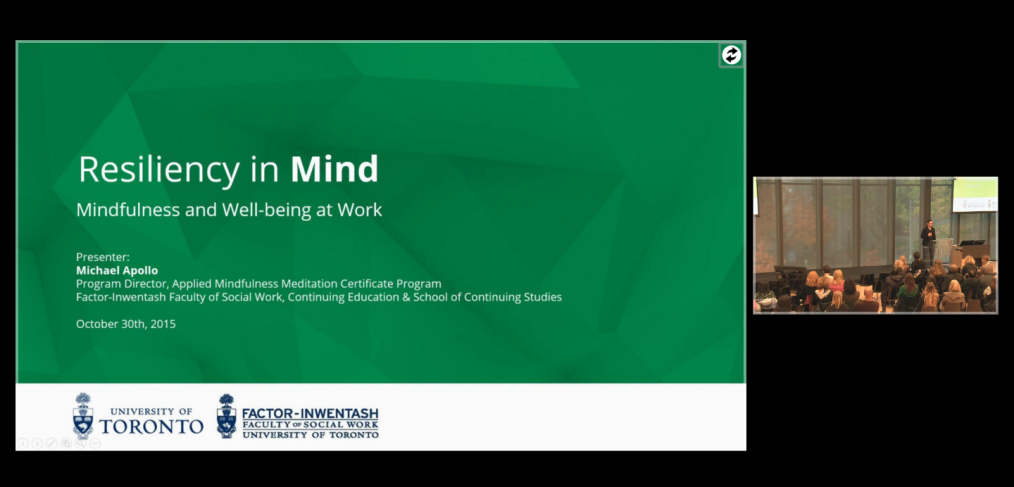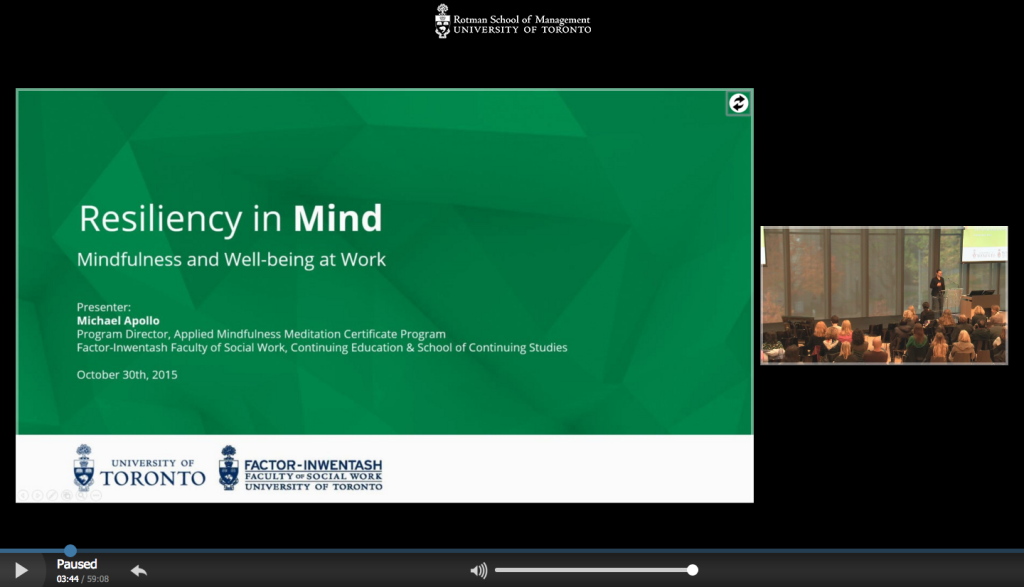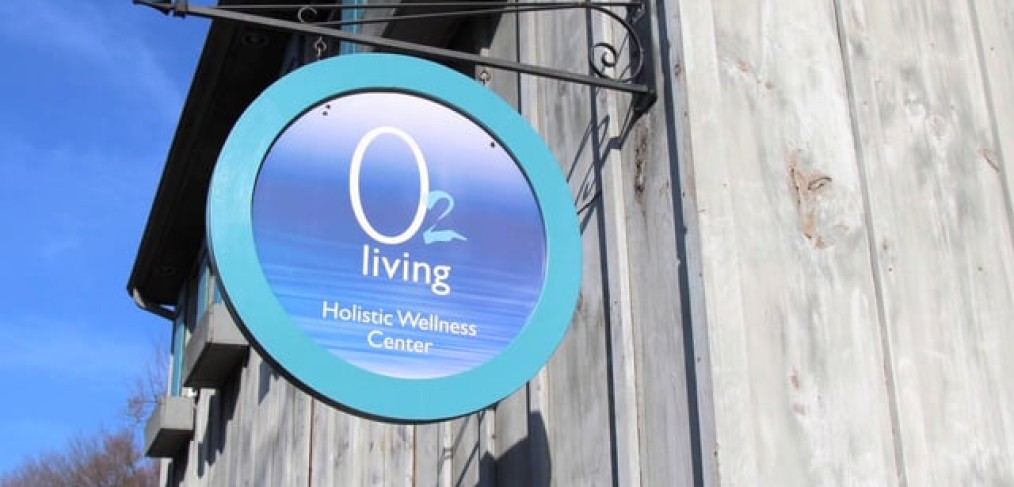Canada’s Healthy Workplace month was held over October and University of Toronto’s Organizational Development and Learning Centre, and the Work-Life Advisory Committee invited Michael Apollo to host the Closing Keynote address at Rotman Business School. Click here to view the keynote.
The Keynote was titled Resiliency in Mind and engaged the audience to reflect back to when they began working, how they felt at this time and how easily the mind shifts perspectives when we are placed into a rapidly changing workplace environment. The neuroscience of stress and mindfulness was explored including the use of mindful awareness to help see clearly what assumptions and perspectives we place upon challenging situations and how we can skillfully respond to whatever is happening. Self compassion was also discussed as a key practice to help stay resilient by targeting the relationship we have with our selves and others to optimize our effectiveness in any given moment.
For more information about all the events held at University of Toronto click here.



